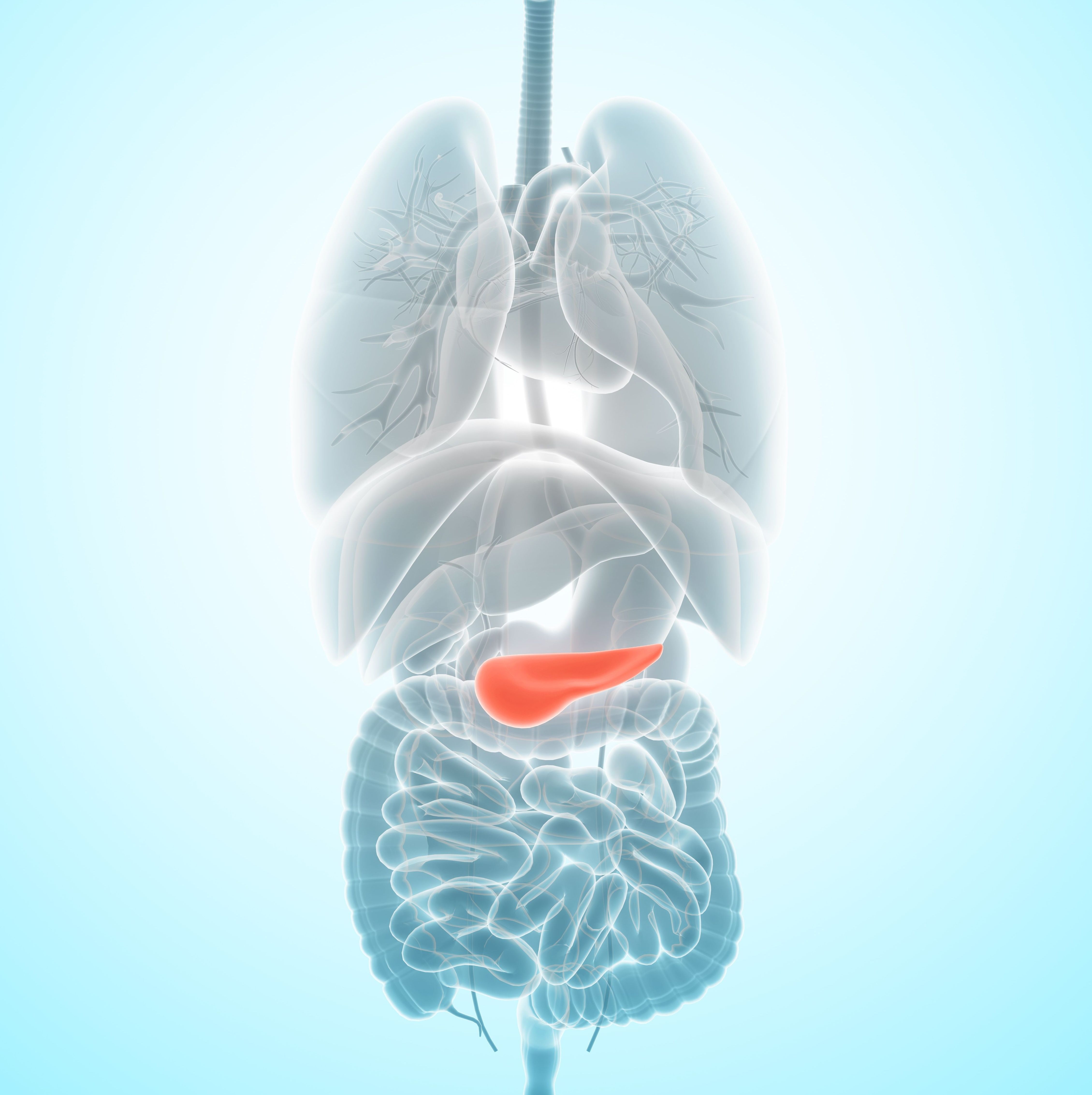EBC-129 Receives FDA Fast-Track Designation for PDAC
Clinical data from a phase 1 trial evaluating EBC-129 in solid tumors will be presented at the 2025 American Society of Clinical Society Annual Meeting.
PDAC cohort enrollment in the dose-expansion portion of the trial is complete, with recruitment ongoing for gastroesophageal adenocarcinoma and IHC-positive cohorts.

The FDA has granted EBC-129, a first-in-class antibody-drug conjugate (ADC) targeting a tumor-specific N256-glycosylated epitope on CEACAM5 and CEACAM6, fast-track designation as a treatment for patients with advanced pancreatic ductal adenocarcinoma (PDAC), according to a news release from Singapore’s national platform for drug discovery and development, the Experimental Drug Development Centre (EDDC).1
Investigators of a phase 1 trial (NCT05701527) are currently evaluating the investigational agent as a single agent and in combination with pembrolizumab (Keytruda) in patients with advanced solid tumors. Updated data from the trial will be presented at the 2025 American Society of Clinical Oncology Annual Meeting. The trial will be presented by Robert W. Lentz, MD, assistant professor in the Division of Medical Oncology in the Department of Medicine at University of Colorado Anschutz School of Medicine, under abstract 4018 during the Gastrointestinal Cancer––Gastroesophageal, Pancreatic, and Hepatobiliary rapid oral session.
“The FDA's fast-track designation for EBC-129 underscores the promise of this novel ADC in addressing the critical need for expanded treatment options for [patients with] PDAC and represents an important step in our efforts to accelerate its development. We view this as both a validation of our efforts and a responsibility to move decisively to advance EBC-129 as a new option to patients in need," Damian O'Connell, MD, PhD, adjunct professor at University Cork College and CEO of EDDC, stated in the news release.1
Patients in the phase 1 trial were assigned to 1 of 5 dose levels in the part A dose-escalation portion of the trial to identify the maximum tolerated dose (MTD) and recommended phase 2 dose (RP2D) of single-agent EBC-129.2 In the part B dose-escalation phase, patients were administered 3 dose levels of EBC-129 plus a fixed dose of pembrolizumab.
Additionally, in the part C dose-expansion cohort, patients received the highest dose of EBC-129 as monotherapy as determined by the RP2D. In the part D dose-fractionation cohort, they were administered EBC-129 as monotherapy, broken into regimens of 2 or 3 doses per cycle. Those treated in the dose-fractionation cohort included those with solid cancer indications who had experienced preliminary efficacy in part C.
EBC-129 was given on day 1 of 21-day cycles in parts A, B, and C of the trial or on day 1 of 21- or 28-day cycles in part D of the trial via 30- to 120-minute intravenous fusion. Pembrolizumab was administered intravenously at 200 mg every 21 days.
The primary end points of the trial included incidence of serious adverse effects in all parts of the trial; MTD and RP2D in parts A, B, and D of the trial; and objective response rate (ORR) in parts C and D of the trial. Secondary end points included ORR in parts A and B of the trial, disease control rate, duration of response, time to progression, progression-free survival, overall survival, and pharmacokinetics of each agent.
CEACAM5 and CEACAM6, which are functionally important for the formation, migration, and metastasis of tumors, are found to be widely expressed in multiple solid tumor types, including pancreatic and gastric cancers, based on immunohistochemistry (IHC) assay. The monomethyl auristatin E payload in EBC-129 has been previously approved for clinical use in other ADCs, demonstrating synergy with PD-1 inhibition.
PDAC cohort enrollment in the dose-expansion portion of the trial is complete, with recruitment ongoing for gastroesophageal adenocarcinoma and IHC-positive cohorts.
References
- Experimental Drug Development Centre granted U.S. FDA fast track designation for antibody-drug conjugate EBC-129 to treat pancreatic ductal adenocarcinoma. News release. Experimental Drug Development Centre. May 28, 2025. Accessed May 28, 2025. https://tinyurl.com/ykn42spn
- A study of EBC-129 in advanced solid tumours. ClinicalTrials.gov. Updated May 20, 2025. Accessed May 28, 2025. https://tinyurl.com/zat9drsm